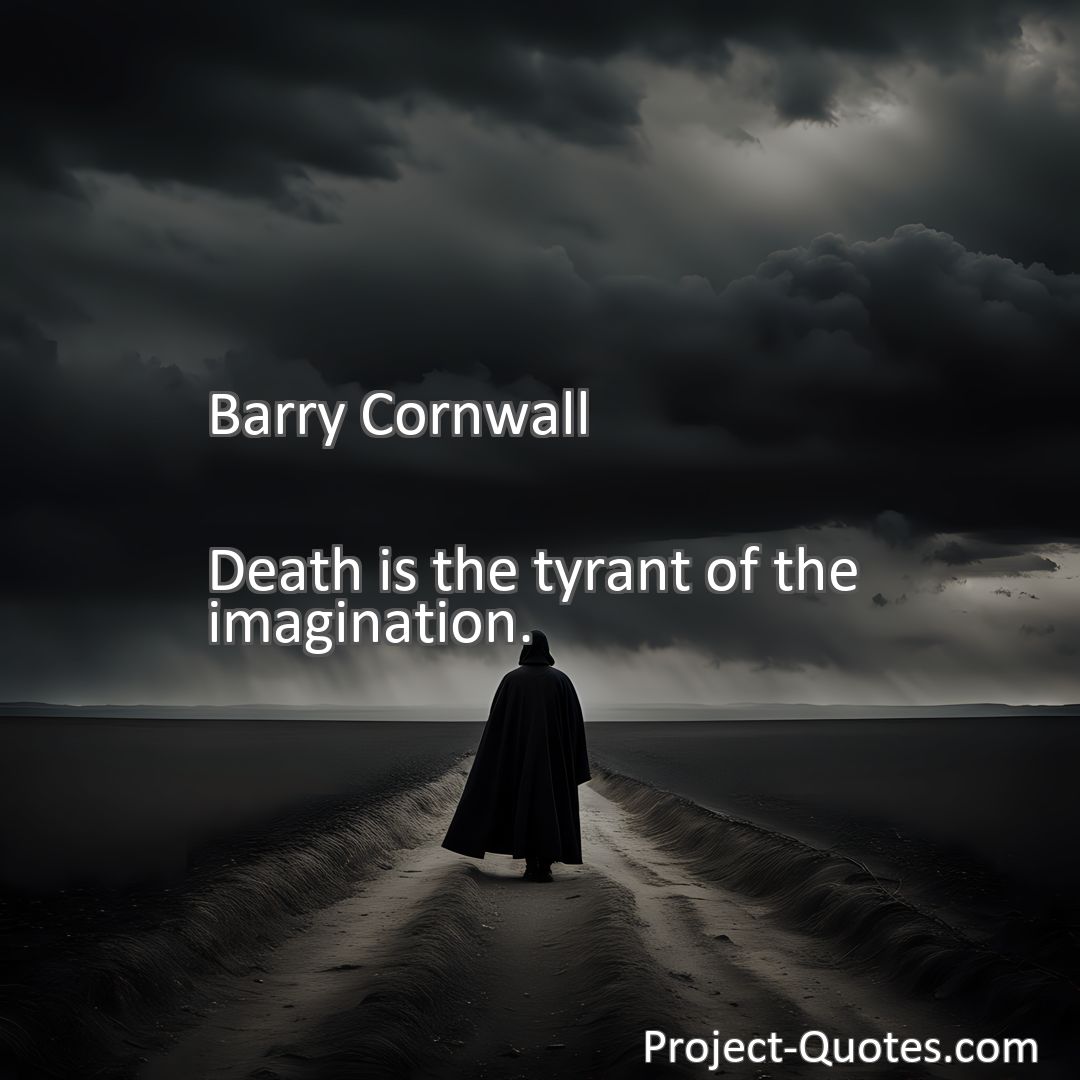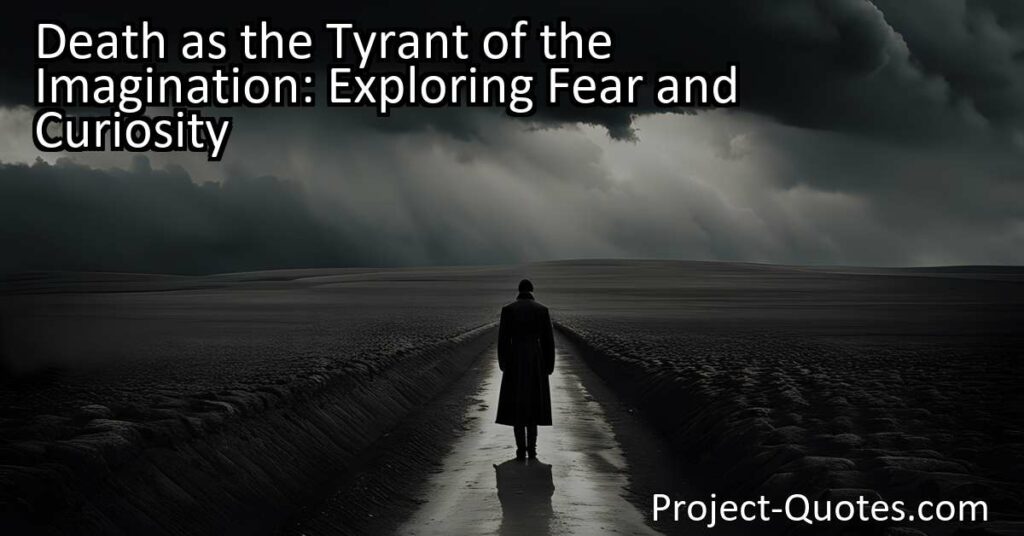Death is the tyrant of the imagination.
Barry Cornwall
Explore the captivating power of death as the tyrant of the imagination. Discover how fear and curiosity shape our thoughts and beliefs about this mysterious unknown. Embrace the duality of death to live more fully in the present.
Table of Contents
Meaning of Quote – Death is the tyrant of the imagination.
Death is a topic that has captivated the human imagination for centuries. Whether it be fear, curiosity, or a sense of wonder, our minds are often consumed by thoughts of what happens after we take our final breath. Barry Cornwall, a British poet and writer, once noted that death is the tyrant of the imagination. In this quote, Cornwall suggests that death has a powerful hold on our minds, dictating our thoughts and shaping our perceptions. So, what does it mean for death to be the tyrant of our imagination? Let’s delve deeper into this idea.
When we think of a tyrant, we often imagine a ruler who exercises absolute power and control over others. In many ways, death possesses similar characteristics. It has the power to shape our thoughts, create fears, and instill a sense of helplessness. From a young age, we are taught to fear death, to view it as the ultimate end and something to be avoided at all costs. Thus, death becomes the ruler in our imagination, dictating our actions and shaping our beliefs.
One way in which death holds sway over our imagination is through its association with the unknown. As humans, we are naturally curious beings, constantly seeking answers to the mysteries of life. However, death remains a mystery that eludes our understanding. What happens to us after we die? Is there an afterlife? These questions fuel our imagination, as we attempt to grasp the unknowable. Death becomes the tyrant in our minds, for it holds the key to a realm that we cannot fully comprehend.
Additionally, our society often portrays death as something to be feared and avoided. Movies, books, and even religious teachings often depict death as a terrifying and gruesome experience. These portrayals further solidify death’s role as the tyrant of our imagination, instilling deep-rooted fears and anxieties about the end of life. This fear of the unknown can be paralyzing, preventing us from fully embracing and enjoying the present moments of our lives.
Furthermore, death’s grip on our imagination extends beyond fear and curiosity. It also influences the way we perceive the world around us. The awareness of our own mortality can lead to a heightened sense of meaning in our lives. Understanding that our time is finite can push us to live with a sense of purpose, cherishing each fleeting moment and making the most of the opportunities that come our way. In this sense, death can serve as a catalyst for personal growth and the pursuit of a meaningful existence.
Despite death’s role as the tyrant of the imagination, it is important to recognize that death is an inherent part of the natural cycle of life. Just as the seasons change, life and death are intertwined. Rather than viewing death as a solely negative force, we can choose to see it as an essential aspect of our existence. Without death, the beauty of life’s moments and the concept of time itself would lose their significance. Embracing the transience of life can allow us to fully appreciate the present and value the relationships and experiences that enrich our journey.
In conclusion, Barry Cornwall’s quote about death as the tyrant of the imagination speaks to the powerful hold death has on our minds and perceptions. Death’s association with the unknown, its portrayal as something to be feared, and its ability to shape our perspective on life all contribute to its role as the ruler within our imagination. And yet, there is a duality to death while it may hold power over our thoughts, it also serves as a reminder of the preciousness and ephemerality of life. By confronting our fears and embracing the inevitability of death, we can free our imaginations from its tyrannical grasp and live more fully in the present.
I hope this quote inspired image brings you hope and peace. Share it with someone who needs it today!


